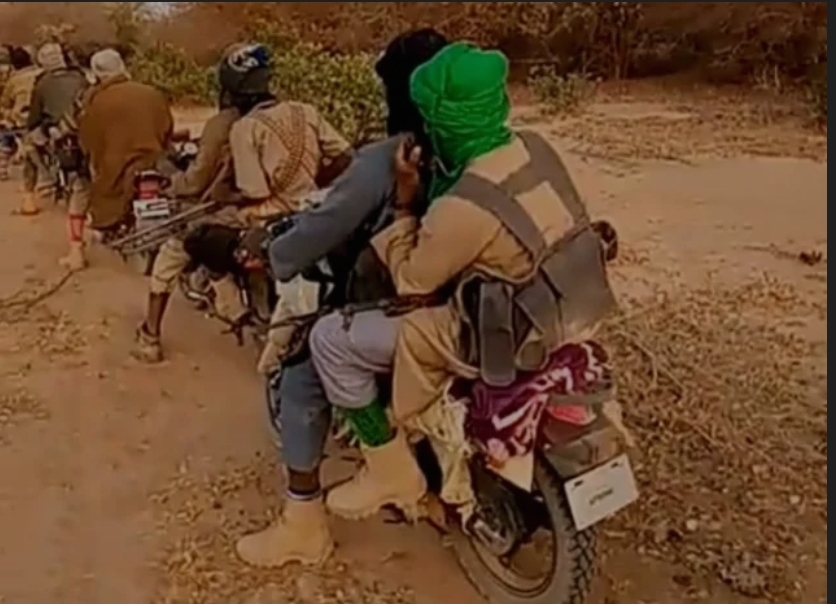Opeyemi Olamilekan

Terrorists locally dubbed as bandits in Nigeria unleashed bloody hell on Monday along the Tsafe-Funtua road in the northwestern Zamfara State, killing several travellers and abducting others.
The incident reportedly occurred around 6 p.m. near Kucheri village in Tsafe Local Government Area, where the assailants ambushed vehicles on the highway, opening fire and forcing some to a halt. Multiple passengers were reportedly killed while others were abducted.
Elsewhere in Bukkuyum Local Government Area of the state, bandits also kidnapped dozens of villagers, including women and children.
The terrorists targeted farmers returning from their fields and motorcyclists along the highway, abducted 36 people and took others through the bush, eyewitnesses said.
One of the witnesses told BBC Hausa Service that the bandits blocked the road to Kairu village early on Monday morning.
“At least 36 people were abducted, and one person was killed,” he said.
The assailants also stormed Maidumma village later the same day, where they abducted 33 men and women after a Juma’at prayer session, including mosque officials.
Although local security forces attempted to repel the attackers, they were unable to rescue the victims as the gunmen fled into the surrounding forest.
Zamfara State has seen a surge in banditry in recent months, with communities frequently targeted for kidnappings and violent raids.
The Zamfara State Police Command could not be reached for comments.
– Insecurity and violence in Nigeria –
For more than a decade, civilians in Nigeria have faced multiple security threats and risk of atrocities as result of attacks, kidnappings and extortion by various non-state armed groups.
Since the start of 2024 civilians have faced intensified violence across Nigeria, and near-daily attacks by armed groups resulting in kidnappings and other abuses against civilians.
Armed groups and gangs, including so-called “bandits,” have – for many years – perpetrated widespread atrocities, including murder, rape, kidnapping, organized cattle-rustling and plunder. Armed herdsmen are also destroying vast swaths of farmland, prompting many farmers to abandon their land out of fear of attack.
In August, the Director General of the World Trade Organisation (WTO), Ngozi Okonjo-Iweala, said insecurity in Nigeria is weaponised by politicians for political and selfish reasons.
A Nigerian soldier, Suleiman S., also alleged that the government’s practice of paying ransoms to terrorists – dubbed as bandits in the country was hindering the military’s ability to effectively combat them.He urged the public to redirect their blame from the Nigerian Army to the government, emphasising that soldiers are constrained by orders and cannot take independent action.
The soldier said the military has the capability to eradicate bandits, particularly in hotspots like Zamfara State forest within a week if given the necessary orders.
He expressed frustration that the military’s potential is being wasted due to a lack of direction from leadership, whom he accused of profiting from the ongoing crisis.
Nigerian authorities are not going to arrest Boko Haram terrorists, bandits, and other criminals because they were created for political purposes, human rights activist Omoyele Sowore had alleged in September.
Speaking when he appeared on Voice of The People FM, Sowore alleged that government officials have links with the criminals, using them to gain power and later protecting them.
